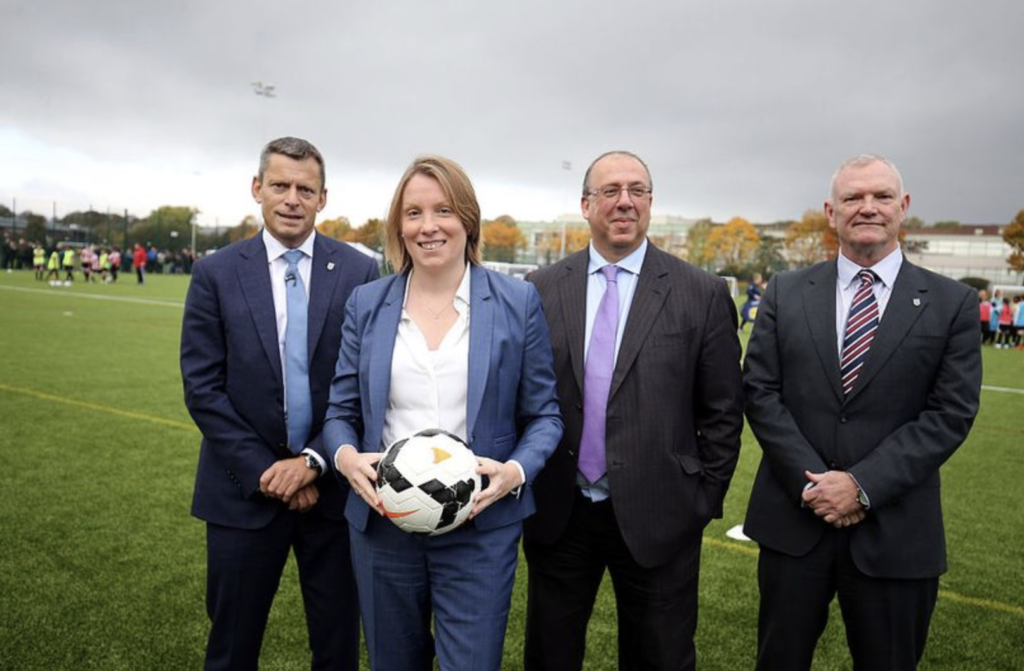
Shadow boards & Football
WHEN published, The Crouch Report rightly highlighted that football’s baddest boys are often found in the boardroom and not on the pitch nor in the nightclubs. Unfortunately, one of its key proposals - allowing fans onto “shadow boards” - is going to ensure that future club governance as well as strategic lapses and off the ball football corporate violence will still garner no regulatory VAR reviews. There won’t even be yellow cards from this well-meaning but lightest of ‘light-touch’ supervisory enhancements.
Few commentators appear to realise that the almost universal positive Government reception of The Crouch Report and its recently announced White paper plans – endorsing various selected proposals including recruiting football fans to “shadow boards” - fails to properly understand and address existing deeper corporate governance problems. Particularly, as it inadvertently but possibly/potentially permanently, consigns fan board involvement to the equivalent of Regimental Goat status.
On the surface, of course, who could gainsay, naysay or question the idea of fans on “shadow boards”? Most – including the Crouch Report, Government and many fan bodies - certainly don’t! Sadly, this particular measure misunderstands the structural and practical operational problems such “shadow boards” already face elsewhere in other industries, domains and geographies. Taking up such positions in future likely condemns these fan representatives to effectively just being glorified Club Mascots.
These specially selected representatives of ‘fan opinion’ will get to see the various captains (of the proper/real board) shake hands and exchange pennants up close. They may even deign to listen to fan suggestions? But that is about it. Once these ceremonial niceties are over, fan representatives will be surplus to requirements even if not substituted from the football corporate governance pitch. They will, of course, remain easily out-played and outvoted by the remainder of the real first team. No matter what their commitment and knowledge or representative and persuasive powers are, those fans elected to sit on “shadow boards” won’t be full participants in the rough and tumble of the (corporate) game of their club nor their League or Football generally. They certainly won’t be able to make and effect much-needed change to drive football and football clubs to different better goals.
We all know that people – not just fans - often become directors of football clubs because they are passionate about the sport, their community and their local club. But, far from providing insight and a steadying hand on the strategic tiller, this can also compromise independence. Not least, if they are a fan of the Club (or football generally), with the best will in the world, their inclusion on the shadow board won’t provide any real check or challenge to the main board decision-making and corporate governance.
If we don’t take care, fans will get a much fuller say in marginal and/or cosmetic stuff – for example, the beer sold at the ground, the colour of the third away strip – but get nowhere near influencing - let alone achieving - structural reform in either the day-to-day running and/or the strategic direction of our professional football clubs. The price of this fan ‘voice’ at the “shadow” boardroom table will be to be briefly ‘heard’ only to then be completely ignored or kept in the dark when it comes to vital actual/real board decisions. Gaining the lip service consultation makes it yet harder to effect actual strategic change.
Rather than rising like a young salmon at the far post to head home in the style of Frank Worthington, shadow board fans will structurally badly struggle to reform our football club governance from within. If you endorse the power of homeopathy over traditional medicine then this addition one fan into the club board mix is a step change and dream come true. Sadly, it is more of a nightmare since our ‘shadow’ board fan heroes get to change into their Superman/Superwoman outfits – probably in new standing terrace sections (with alcohol licences and fan choice of ‘guest’ beers) - while the forces of football boardroom evil continue to destroy our football communities and football heritage assets with impunity.
Unless there is an urgent course correction during the White Paper consultation, then collectively we are in danger of asking for the wrong things and, thereby, ensuring that football club boards don’t make any of the real/effective changes fans thought they were seeking and demanding.
Rather than run dizzying patterns or admire the wonder of our own fan-led gegenpress, it is time for all those interested in improving football executive suite performance in the UK to go route one and agree simpler Route One tactics to put the corporate governance ball in the football boardroom net. Otherwise, if collectively we don’t, despite the once-in-a-lifetime mercurial promise and talents of the Crouch Report it will struggle to get off the subs bench or else have to retire early due to serious injury.
Notes
Prior to the publication of The Crouch Report, the most recent authoritative and revealing look into football club (both professional and amateur) corporate governance was undertaken by Henley Business School. It painted an unflattering picture of the decision-making, quality and effectiveness of professional football club board governance in both England and Scotland as well as in UK sport generally.
These survey results (which appear in my book Independent Director in Society) revealed an almost complete lack of diversity and of boards recruiting directors, “who they think will give them a less challenging time”. What makes this worse is that an often ad hoc recruitment and appointment process (26 per cent had no formal process) means there is clear evidence of a lack of experience for these football club board roles. Sixty-two per cent of respondents had less than three years’ experience in their role and half held no other similar board position meaning their experience is limited in the extreme. More than 10 per cent had no induction training. Many don’t have “regular updates and presentations on the board from other internal/external experts apart from management” nor are they “given the right quality of information for the board agenda to play an effective role during meetings”. The disconnect between input quality (i.e. director time, information quality, engagement, tenure and board experience) and director effectiveness (i.e. articulating a different perspective, contributing to a shared purpose, monitoring and stewardship tasks) if nothing else indicates some degree of complacency. Nonetheless, many were still over confident enough to rate themselves as doing a “good job” or better.
Photo credit: chroniclelive.co.uk/Getty
